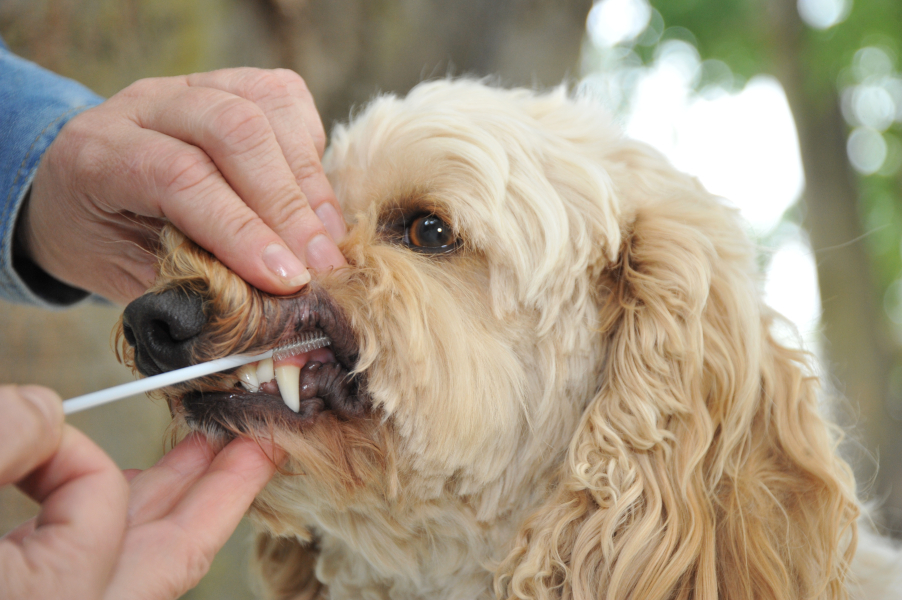Quick Summary
Click here for Price and Turnaround Time
Phenotype: Von Willebrand disease (vWD) is an inherited bleeding disorder resulting from a lack or reduced level of a normal blood clotting protein called von Willebrand factor (vWF). Disease presentation varies from asymptomatic to spontaneous hemorrhaging and prolonged bleeding after injury, surgery, or giving birth. Age of onset varies with some dogs only becoming obvious “bleeders” later in life. Without medical intervention, uncontrolled bleeding can result in death.
Mode of Inheritance: Autosomal recessive
Alleles: N = Normal/Unaffected, vWF = Von Willebrand disease (vWD)
Breeds appropriate for testing: German Shorthaired Pointer, German Wirehaired Pointer
Explanation of Results:
- Dogs with N/N genotype will not have Von Willebrand disease Type 2 and cannot transmit this variant to their offspring.
- Dogs with N/vWF genotype are unlikely to develop Von Willebrand disease Type 2, but are carriers. They may transmit this variant to 50% of their offspring. Matings between two carriers are predicted to produce 25% Von Willebrand disease Type 2-affected puppies.
- Dogs with vWF/vWF genotype may be affected and develop Von Willebrand disease Type 2, a blood clotting disorder. They will transmit this variant to all of their offspring.
Results of this test can be submitted to the OFA (Orthopedic Foundation for Animals)
Sample Collection
Dog DNA tests are carried out using cells brushed from your dog's cheeks and gums. The preferred cytology brushes are sent to you by mail, or you may provide your own brushes. For accepted alternative brushes, click here
We recommend waiting until puppies are at least three weeks old before testing.

Step-By-Step:
- Make sure the dog has not had anything to eat or drink for at least 1 hour prior to collecting sample.
- When swabbing puppies, isolate each puppy from the mother, littermates and any shared toys for 1 hour prior to swabbing. Puppies should not have nursed or eaten for 1 hour prior to collecting sample.
- If collecting samples from more than one dog, make sure to sample one dog at a time and wash your hands before swabbing another dog.
- Label brush sleeve with name or ID of dog to be sampled.
- Open brush sleeve by arrow and remove one brush by its handle.
- Place bristle head between the dog’s gums and cheek and press lightly on the outside of the cheek while rubbing or rotating the brush back and forth for 15 seconds.
- Wave the brush in the air for 20 seconds to air dry.
- Insert brush back into sleeve.
- Repeat steps 5 - 8 for each unused brush in sleeve on a fresh area of cheek and gums. Make sure to use and return all brushes sent by the VGL. In most cases, it will be 3 brushes per dog. If using interdental gum brushes, please note that the VGL requires 4 brushes per dog and only moderate or wide interdental gum brushes are accepted.
- Do not seal brushes in sleeve.
- Place all samples in an envelope and return to the address provided.
ATTENTION:
- Do not collect saliva/drool – the key to obtaining a good sample is getting cheek cells on the swab
- Do not rub swab on the dog’s tongue or teeth – this will result in poor quality sample
- Do not collect a sample from a puppy that has recently nursed – the mother’s genetic material can rub off on the puppy’s mouth and contaminate the sample
Von Willebrand disease (vWD) is an inherited bleeding disorder resulting from a lack or reduced level of a normal blood clotting protein called von Willebrand factor (vWF). Disease presentation varies from asymptomatic to spontaneous hemorrhaging and prolonged bleeding after injury, surgery, or giving birth. Furthermore, age of onset varies with some dogs only becoming obvious “bleeders” later in life. Without medical intervention, uncontrolled bleeding can result in death. Several genetic mutations that prevent normal functioning of vWF have been identified. These mutations are associated with different clinical bleeding disorders known as vWD Type 1, Type 2 and Type 3.
vWD Type 2 is rare and associated with abnormal structure and function of vWF. Two mutations in vWF (c.4937A>G and c.1657T>G) are associated with this disorder, but the later is considered causative. vWD Type 2 appears to be inherited as a recessive trait, as only dogs with 2 copies of the c.1657T>G variant had a history of prolonged bleeding according to Von-Loohuis et al. 2017. It occurs in German Shorthaired Pointer and German Wirehaired Pointer breeds. The VGL test is based on the c.1657T>G mutation.
Testing for vWD Type 1, vWD Type 2, and vWD Type 3 can help breeders determine the genetic status of breeding stock and risk for bleeding disorders. Veterinarians can use test results to confirm clinical findings and inform appropriate courses of treatment or management.
